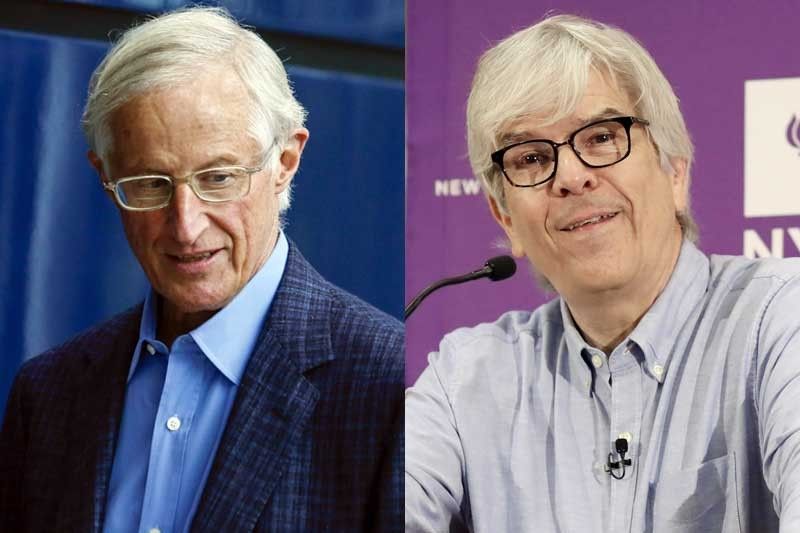Nobel economics winner predicts US will accept climate science

STOCKHOLM – Yale University economics professor William Nordhaus, co-winner of the Nobel Prize in economics for linking climate change and economics, says there’s “pretty widespread acceptance” of climate change science outside the US. But he’s optimistic that the United States will come around.
Referring to the Trump administration’s skepticism, the 77-year-old Nordhaus said Monday, “I think we just need to get through what is a difficult period. But I’m extremely confident it will happen.”
Nordhaus says bringing countries together to solve the climate change problem is the “last frontier” for the issue, arguing that the science has been settled. He warns it will be very difficult to have an international agreement without the US participating, predicting the country will have to revisit the issue “in a couple of years” after a new administration is in place.
The other winner of this year’s Nobel Prize in economics says he ignored two telephone calls, thinking they were spam calls, before the Swedish Royal Academy of Sciences was able to get through to him.
Paul Romer of New York University said that on Monday morning “I didn’t answer either because I thought it was a spam call.”
Romer teaches economics at New York University, where he founded the Stern Urbanization Project, which researches how policymakers can harness the rapid growth of cities to create economic opportunity and undertake systemic social reform.
Romer also works with civic innovators as director of NYU’s Marron Institute of Urban Management. The university says he founded Aplia, an education technology application where students have submitted more than one billion answers to homework problems.
In awarding the Nobel Prize in economics, the Swedish Royal Academy of Sciences cited Nordhaus for showing that “the most efficient remedy for problems caused by greenhouse gases is a global scheme of universally imposed carbon taxes.”
A faculty member at Yale University since 1967, Nordhaus’ research has focused on economic growth and natural resources, and the economics of climate change. His economic approaches to global warming include modeling to determine the efficient path for coping with climate change.
He’s also studied wage and price behavior, health economics, augmented national accounting, the political business cycle, productivity, and the “new economy.” His current work on what he calls his “G-Econ project” promises to provide the first comprehensive measures of economic activity at a geophysical scale.
The Swedish Academy said that the work of Romer showed “economic forces govern the willingness of firms to produce new ideas and innovations.”
Nordhaus and Romer will share the nine-million-kronor ($1.01 million) prize.
The award that concludes this year’s series of Nobel prizes came about seven decades after the others.
When Swedish industrialist Alfred Nobel established the prizes in his will, economics wasn’t one of the undertakings he wanted honored. The Nobel Memorial Prize in Economic Sciences was established by Sweden’s central bank and first given out in 1969.
Whether economics is a genuine science in the sense of the Nobels awarded for accomplishments in medicine, chemistry and physics can be debated; the award often goes to work that has a high level of abstraction.
Last year’s win by American Richard Thaler was unusually accessible to the layman – his work studied the human irrationality that can mess with economic theory.
- Latest























